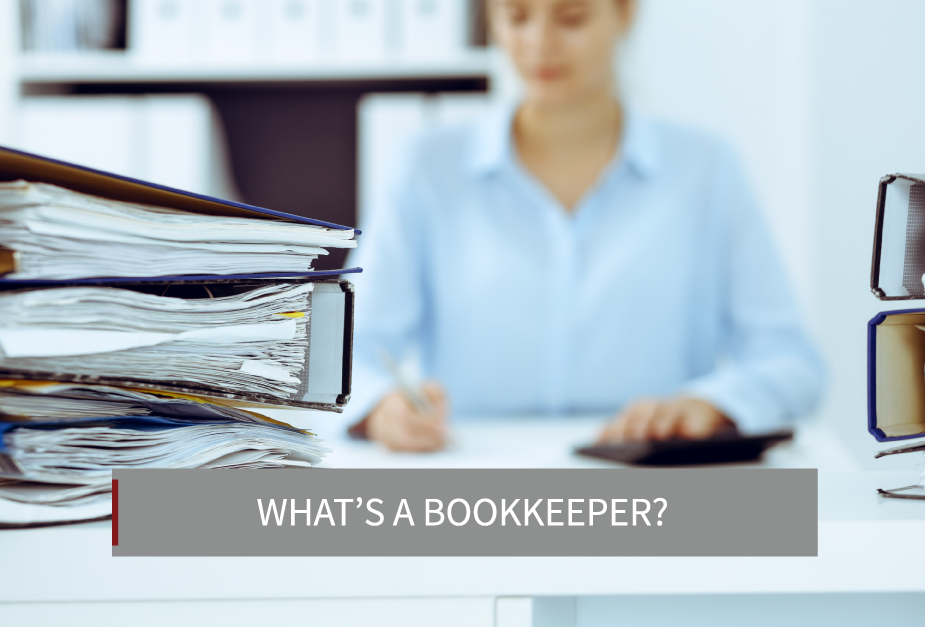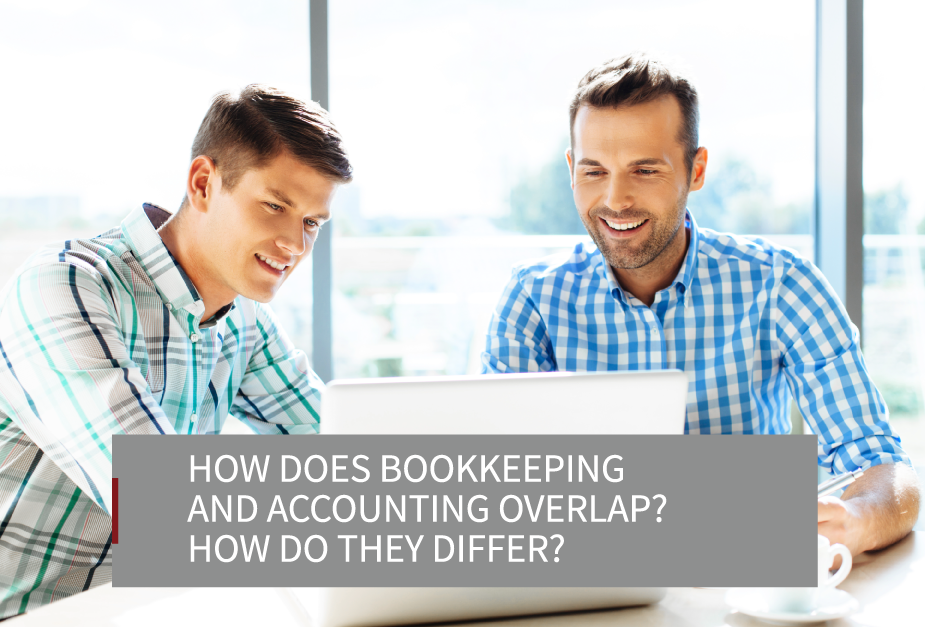When you’re trying to grow your business, you may decide you need help with keeping track of your financials. Perhaps you’re looking into hiring someone to take that off your plate.
But what do you need for your Marin county business?
An accountant, a bookkeeper, both? What’s even the difference?
Their qualifications overlap, so it can be a confusing question to answer.
Finding the right specialist to suit your organization is important, so make sure you know what you need before you waste your time looking in the wrong place.

What’s a Bookkeeper?
A bookkeeper’s job is to be objective. They’re at your business to document and maintain records of the money that comes in and goes out on a day-to-day basis. A good bookkeeper will consistently and clearly log transactions in a way that’s easy to understand.
Bookkeeping has been around as long as finance has been around, and there’s a clear line between good bookkeeping and business growth.
Bookkeeping is mostly clerical and administrative. Some of duties of a bookkeeper could include:
- Completing payroll
- Producing invoices
- Making sure financial records meet federal requirements
- Posting debits and credits
- Providing regular budget reports
- Cataloguing receipts and reimbursement requests
Perhaps more important than any other task, though, is maintaining a general ledger, wherein your bookkeeper records the financial specifics from sale and expense receipts. A ledger can be as simple or as complex as your business calls for. It can be a physical notebook or sophisticated bookkeeping software like QuickBooks.
However, they choose to do it, the important point is that the tracking is accurate and easy to understand. That way, you’ll have a good handle on your debits, credits, and transactions.
What’s an Accountant?
An accountant, on the other hand, is hired to look at the big picture. Their job is to analyze the financial data provided to them and use their expertise to produce financial models that provide insight to the best path forward for your business.
Accountants use their knowledge of financial rules and laws to implement procedures.
Accountants can cover quite a bit of ground, but some of their responsibilities might include:
- Creating financial statements
- Proposing and implementing money saving practices
- Evaluating cost of operation
- Maintaining knowledge of tax laws and ensuring compliance with them
- Completing tax returns
- Performing audits
Accounting is a subjective art. So much of what an accountant provides is financial guidance. You’re hiring them because you need someone who is going to make sense of the financial scrum you might not have expertise navigating. Bringing in an accountant with specialized knowledge to help the health of your business might be necessary to get you to the next level.

What Kind of Training is Needed?
Technically, one doesn’t need any specialized education or training to be a bookkeeper. They just need to have an eye for detail and some key financial knowledge. However, there is accreditation available for dedicated bookkeepers.
In order to join the American Institute of Professional Bookkeepers (AIPB), they need to pass a national exam and have two years of full-time work experience.
To join the National Association of Certified Public Bookkeepers (NACPB) and gain a certified public bookkeeper license, they would need to pass an exam, have 2,000 hours of work experience, and sign a code of conduct.
Accountant training is a bit more stringent. To become an accountant, they must earn a bachelor’s degree from an accredited university or college in accounting or, lacking that, finance.
However, when we talk about “an accountant,” we’re often talking about a Certified Public Accountant (CPA). In order to obtain the title of CPA in California, an individual must have:
- A bachelor’s degree
- 24 semester units in accounting-related subjects
- 24 semester units in business-related subjects
- 150 semester units (or 225 quarter units) of education
- Passed the Uniform CPA Exam
- Passed the Professional Ethics Exam for CPAs
- One year of general accounting experience supervised by a CPA with an active license

How Does Bookkeeping and Accounting Overlap? How Do They Differ?
You know how every square is a rectangle, but not every rectangle is a square? It’s the same way with bookkeeping and accounting. Bookkeeping is a necessary part of the accounting process. If the bookkeeping and accounting are done by different entities, they still work hand in hand.
A bookkeeper will maintain a clear and thorough ledger that communicates the facts of the financial bones of the business. An accountant will take the information provided to them by the bookkeeper and implement a strategy meant to make the business more successful than ever.
Ultimately, when you hire an accountant, you’re paying for the training. Bookkeeping tends to be a static job, relatively similar regardless of the industry.
Accountants have to keep up with assorted tax laws and have the creativity to see the master plan. Accounting even breaks down into various specialties. An individual accountant might decide to go into forensic accounting and spend their days investigating fraud while an investment accountant might be dealing with brokerage and asset management firms in the finance industry.

Which One Do You Need For Your North Bay Business?
We can’t tell you what you’re looking for, but we can give you a good idea with a question. Do you need advice? More specifically, do you need someone to help provide financial guidance?
Whether you’re a start-up, a small business, or an established company looking to shrink their margins, we know you’re always trying to make things run more efficiently.
You need someone to make sure you’re the top priority. With us, you will be.
At Books In Balance, we’re more than happy to take care of the specialization you need. Just want someone to make sure your ledger is clear and concise? We’ll do your bookkeeping for you.
Need someone to take a look at your books and make sure you’re running optimally? Our CPAs are ready to provide the business consulting you need.
Want both? We’ve got you! Set up a free consultation right now by calling our San Rafael office. Whether you need bookkeeping or accounting, we’re ready to serve you.
- Preparing Your Tax Documents - February 1, 2024
- Making of a Successful Team Environment - December 31, 2023
- Got a Mistake on Your Tax Returns? - September 3, 2023

